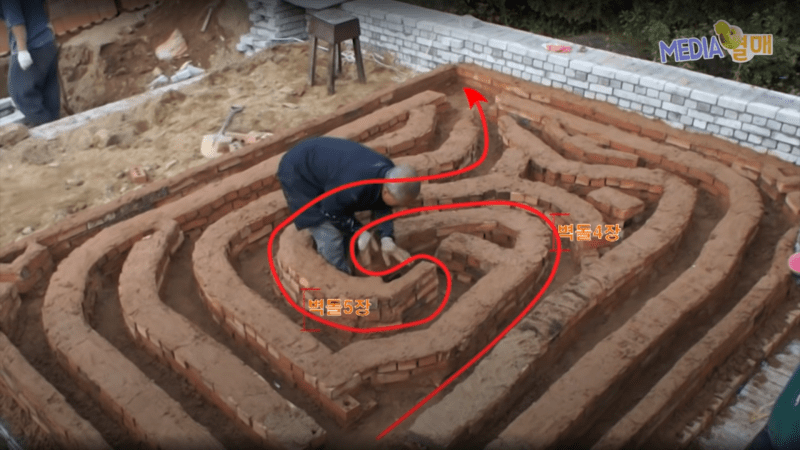Ondol: Korean Underfloor Heating

One of the many aspects of the modern world we often take for granted is the very technology that keeps our accommodation at a habitable temperature. Examples of this include centralized heating systems using hot-water circulation, or blown air ducted to multiple rooms from a central furnace. Certainly in Europe, once the Romans shipped out, and before the industrial revolution, we were pretty cold unless someone lit a fire in the room. Every room. But not in Korea. The Ondol heating principles have been used constantly from about 5000 BC to only a few decades ago, keeping your average Korean countryman nice and toasty.
Having said that, the sophistication has improved a bit. Initially, the idea was to simply heat up a bunch of rocks in the fire, and bring them indoors, but Ondol quickly became part of the building itself. As will be seen from the video embedded below, the house sits on top of an elaborate double stack of serpentine channels, that circulate the hot combustion products from the furnace as thoroughly as possible, slowing down the gases and allowing their heat to transfer into the structure of the floor, and then radiate into the space above. It does bear more than a passing resemblance to the Roman hypocaust system, ruined examples of which can be found all over the UK and Europe. The skill demonstrated in the video is considerable, but must surely be an expensive build reserved for the most culturally aware Koreans who wish to live in simpler (and less hectic) locations in their country.
Maybe for the vast majority of us, this kind of thing is not viable, and we’re more likely to benefit from a more centralized approach, perhaps using waste heat from data centers or geothermal activity. (See: Iceland)
Thanks to [Keith] for the tip!
Post a Comment